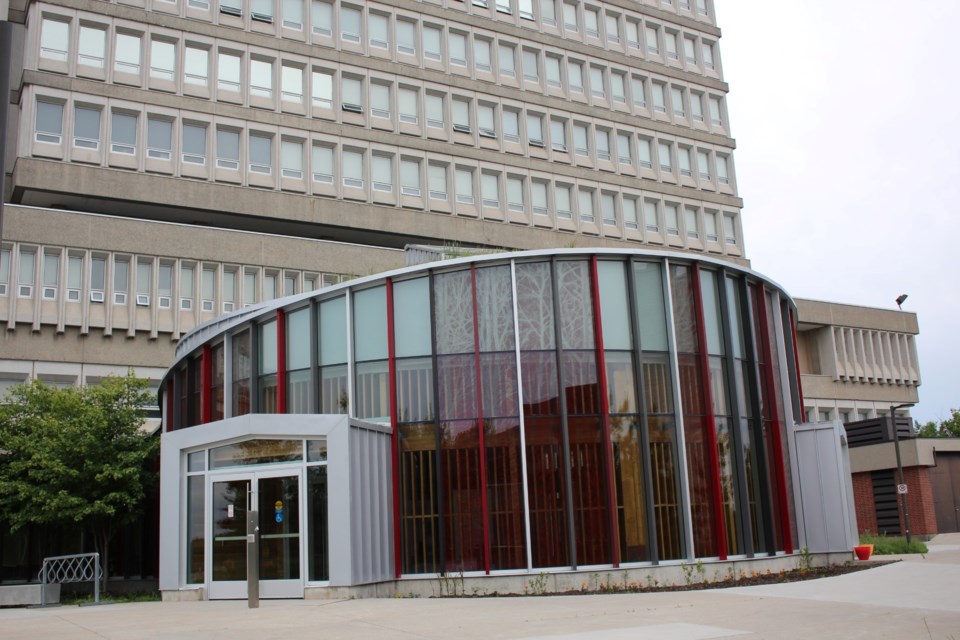The Maamwizing Indigenous Research Institute (MIRI) at Laurentian University has received $430,832 in funding from the Social Sciences and Humanities Research Council’s (SSHRC) Race, Gender and Diversity Initiative.
This grant was awarded to Joey-Lynn Wabie, with funds to support a three-year project, titled: Maamwizing: a hub for Indigenous community-driven research.
This news was celebrated on National Indigenous Peoples Day earlier this week. This day recognizes and celebrates Indigenous cultures, communities and peoples and offers the opportunity to reflect and commit to principles of Truth and Reconciliation.
Laurentian is Canada’s only university with a tricultural mandate, offering a post-secondary experience in English and French with a comprehensive approach to Indigenous education, said a press release from the university.
These are principles that Laurentian takes pride in, and MIRI complements by providing opportunities for, and with, Indigenous students to learn about authentic relationships and research with communities.
Maamwizing: a hub for Indigenous community-driven research will be led by Wabie and two local Anishinaabe community partners: Akinomooshin Inc., & White Buffalo Road Healing Lodge Inc.
These organizations are dedicated to Indigenous resurgence, or the reconnecting of Indigenous peoples with Indigenous knowledges, governance, languages, ceremonies, relationships, and lands at the grassroots level, thereby addressing the systems and impacts of racism and colonialism as they impact Indigenous peoples.
Darrel Manitowabi, Elizabeth Carlson-Manathara, and Kevin Fitzmaurice are also integral to the success of the grant as co-applicants.
“In fostering a research space that is driven by community partners and supported by the MIRI research team, our objective is to centre community and culturally based knowledge and perspectives towards the co-creation of evidence based research findings that best responds to specific programming and service delivery needs,” said Wabie, Algonquin Anicinabe ikwe from Mahingan Sagahigan (Wolf Lake) First Nation, incoming Director within Laurentian’s School of Indigenous Relations and Acting Director of MIRI
“This can further inform the larger policy questions relating to effective and equitable community and culturally based programming for Indigenous youth in the north and within an overall framework of Indigenous self-determination and decolonization.”
Susan Manitowabi, Interim Associate Vice-President, Office of Academic and Indigenous programs shares Wabie’s enthusiasm.
“This research is an expression of Indigenous self-determination in that it is being proposed by, for, and with Indigenous people,” she said.
“The application of the 7 Pointed Star Hub Model, as a uniquely MIRI approach to community-driven research will provide an Anishnaabe, culturally based and supportive method for community engagement, planning, and research sharing practices; which are grounded in the principles of the Seven Grandfather Teachings: Respect, Bravery, Honesty, Humility, Love, Wisdom, and Truth.”
Vince Pawis Sr., founder and Executive Director, White Buffalo Road Healing Lodge Inc., added that he and his team are grateful to be a part of this critical project.
“Having worked in the community with Indigenous youth and adults since our inception in 2005, this is a great opportunity to research the work of grassroot Indigenous agencies to help support Indigenous healing,” he said.
“Miigwechiwendam” is the sentiment of Julia Pegahmagabow, founding eniigaanizid for Akinoomoshin Inc.
“With the support of this partnership and grant, we will be able to re-search our pathway to anishinaabe kendaaswin and come to understand the relationship to anishinaabe pedagogies and how to apply them,” she said. “We have the support of Maamwizing to find the threads that our ancestors were able to leave for us and weave them into a strong foundation of knowing and knowledge transmission for our children, youth, and communities.”
In November, Laurentian University and MIRI look forward to hosting Maamwizing 2022: Land and Language, a conference that will focus on the sharing of stories and wise practices to ensure the health and wellness of both land and language is cared for.
This will include broad interpretations and wider connections between land and language by grassroots community voices, alongside Indigenous scholars and non-Indigenous people who work in allyship with them.
Confirmed keynote speakers include Niigaanwewidan Sinclair (University of Manitoba), Jennifer Walker (McMaster University), and Joseph Pitawanakwat (Creator’s Garden). Celeste Pedri-Spade (Queen’s University), inaugural Director of MIRI from 2016 to 2019, will provide an opening address.
